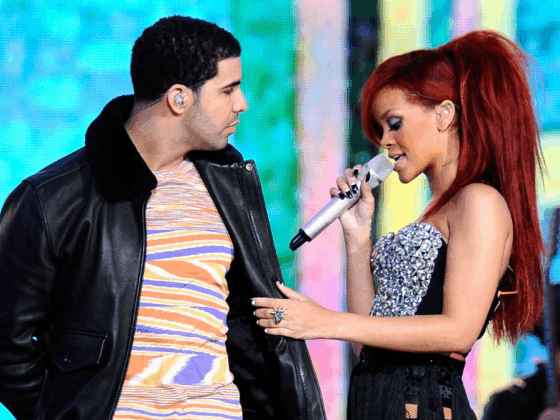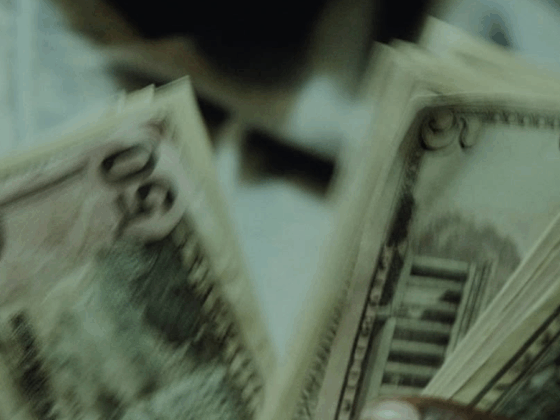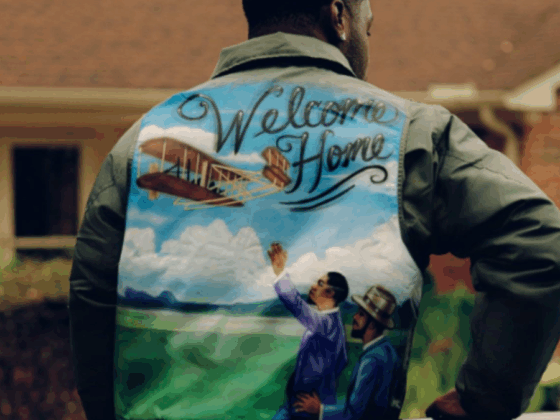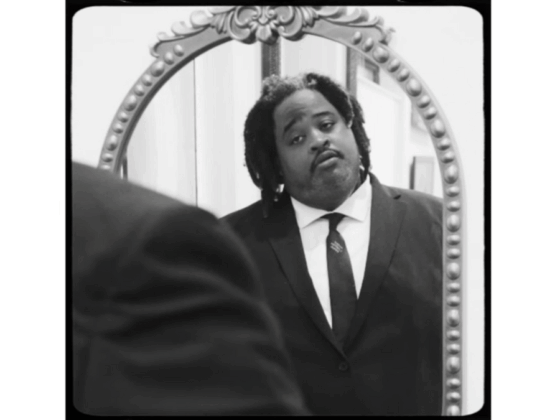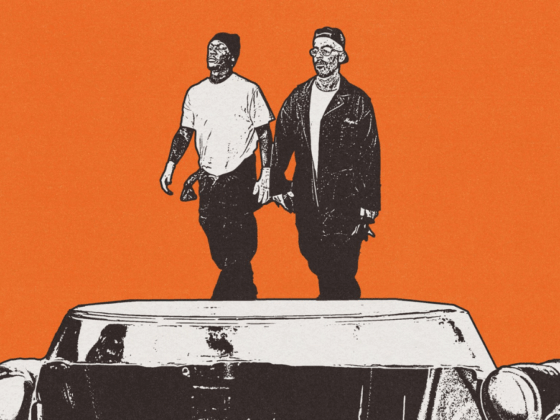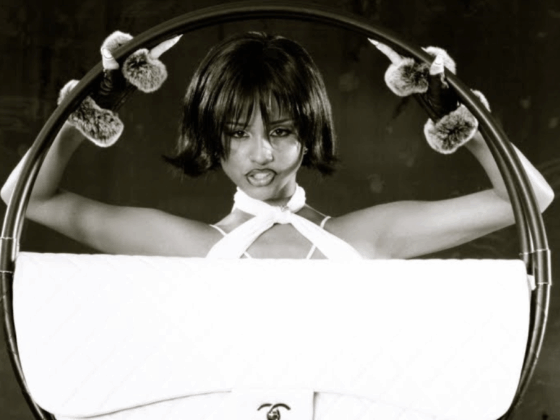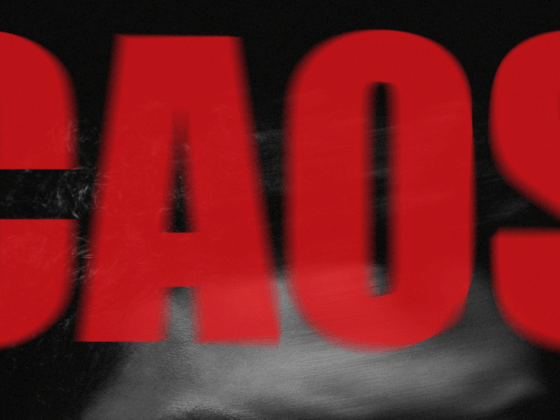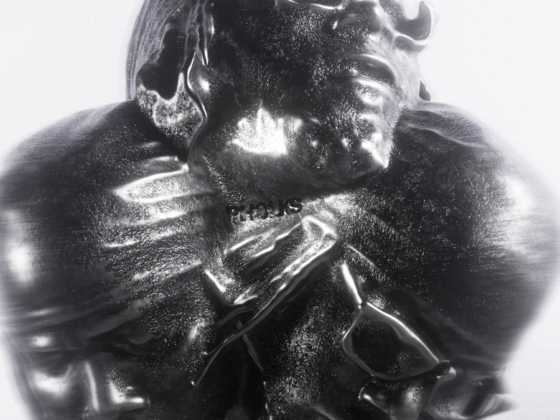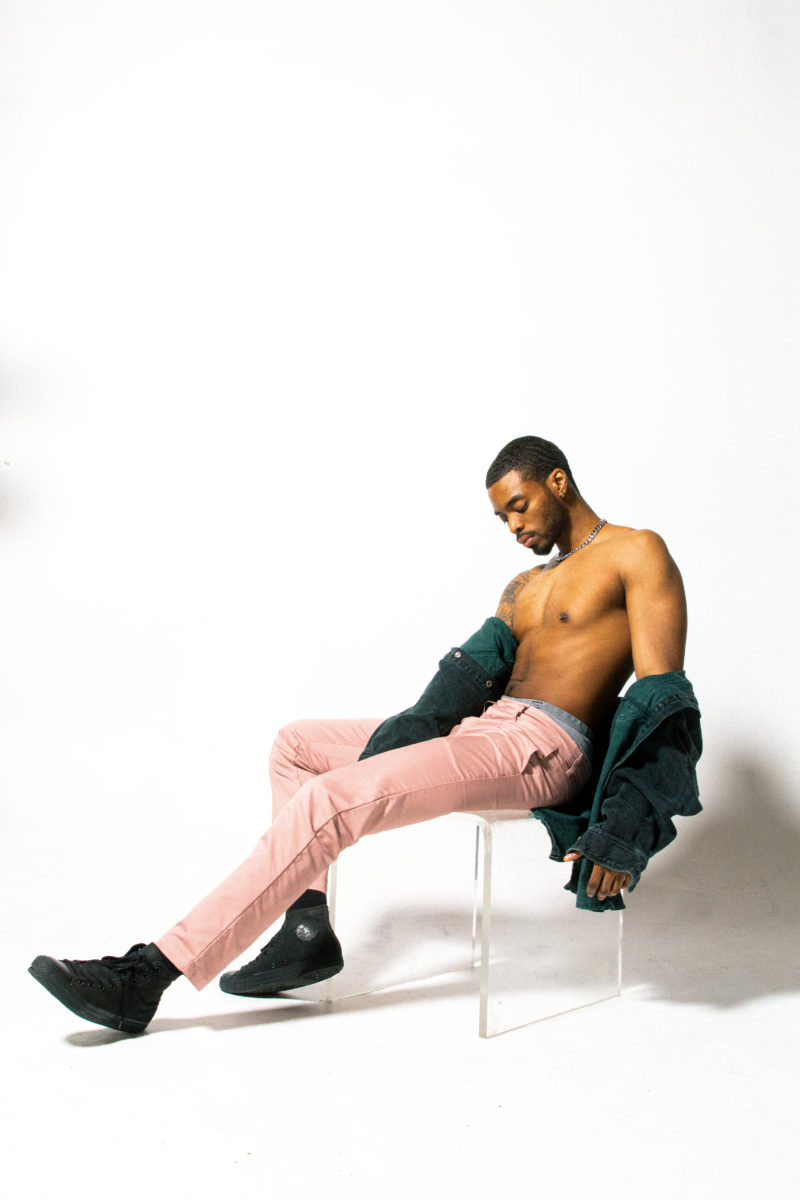
Pressure is known to build diamonds. No one proves this to be more true than Joël. Enduring a toxic relationship, working long hours at Walmart and damaging his vocal cords, he has been able to overcome the obstacles in his path en route to building a budding music career. In our interview with Joël, he touches on his new music, discusses being featured on the Joe Budden Podcast and much more.
I guess I’ll get right into it. I have noticed that in the past you’ve shied away from using certain buzz words or genres to describe your music. In your own words, how would you describe your music or what genre would you put your sound in?
I feel like these days a lot of genres are blending and they don’t matter as much anymore. If I were to put it into a genre, I would definitely put it into alternative R&B.
The first time I was introduced to your music was in 2018 with the “Vent” video.
Oh, really?
Yeah, it was circulating through blogs back then and I saw the video that you did in a warehouse. It was done DIY and it came out great. What made you pick that location and what was your creative process like in shooting that video?
When I dropped that song, I think it was around December or something like that. I had just moved out of my ex-girlfriend’s crib at the time. I was working at Walmart. There was a lot of sh*t going on. I was juggling working at Walmart and trying to do this music thing full time. I would wake up at 3 a.m. to get to work at 5 a.m., so I could leave at 3 p.m. to make music right after.
I was just constantly on the go. I ran into a lot of roadblocks, obstacles and different sh*t because of how crazy my life was at the time. Being in a hella toxic relationship kind of messed with my mind. A lot inspiration for music also came from that time in my life.
As I mentioned, I was working at Walmart in their warehouse. I was on the line putting stuff out on to the trucks when I kind of came up with this concept. As everything was going on, I asked myself, “What if I was alone?” Going through what I was going through with my ex, I wondered, “What if no was here and I just expressed myself? I could be dancing and not give a f*ck who was watching me in this empty joint.”
The video starts off with me sweeping, cleaning up and then I drop the broom and zone out. After that, I put on my headphones and do me.
I know that a lot of people who work in fine art, music, theater, media or any other type of creative space ask the question, “When I do I stop doing my daytime job and start pursuing my art full time?” At what point did you make the decision to pursue music as a full-time career?
I think it was right after the “Vent” video. Like I said, I was running into a lot of roadblocks as I was working and spent a lot of time on the floor talking to people. Being an artist, especially a singer, your voice is your instrument. It’s your everything. You’ve got to take care of it. If you were to compare your voice to a trumpet, you’d have to clean it and oil it to make sure that it’s good.
At that time, I wasn’t taking care of myself. I got probably three or four hours of sleep at the most. Then, I’d go to work, hit the studio and have a rehearsal. I just was on the go all the time and I ran into some vocal issues. At that point, I went to the doctor to get checked out. After that, I decided to take this music thing seriously and also take myself seriously. I needed to take care of my physical health. I just wanted to make sure that my health was on point before I did anything else.
A few months after you dropped “Vent,” you also put out “Type.” When listening to those two songs, I wouldn’t say there’s a huge difference, but there is definitely a noticeable difference. On “Vent,” you’re singing more and on “Type” you’re almost rappng a little bit.
If I’m being honest, I was iffy about that song at the time. I didn’t know how people would feel about it because it was something that I experimented with. I just kind of had fun with it and just dropped it. At first, I wasn’t sure about it. Looking back at it, I’m happy I dropped it because it was in a different lane. I don’t want to be stuck in a box. As I was saying earlier, genres are blending and artists are being more free. It’s another bag, so I’m happy I did it.
Both of those songs are on Grunge Gospel, which is an interesting title. Your Dad was a pastor, so you spent a lot of time growing up in the church around gospel music. What influence did the church and gospel music have on you growing up?
Growing up in the church, it was always around me. Back in the day, my Dad was a pastor, so I had no choice but to go to church on Sundays. As I got older, I kind of learned to love it.
I was a hyper kid, so my Mom used to put me in the children’s choir because of that. She’d tell me to take an hour or two out of my Sunday to do that because she wanted me to settle down and whatnot. I used to hate it, but as I got older I would find myself singing around the house more. It was the cute thing to do. All the old heads would say, “Look at this little guy sing. It sounds good.” Then, I started to crave that. It just kind of became a thing.
What was your parent’s first reaction when they heard you singing your own song or put together your own music?
I was really young when I started writing. In the house, I was maybe between five and seven years old when I started.
My brother also played the organ, so we’d just put dumb sh*t together. I think the first song I wrote was called “Wind Boy” or something. It was so random. I always did that type of thing.
Going back to Grunge Gospel, I know you worked with Colin Munroe on it. For some people, his name might not jump out because he’s worked behind scenes a lot. He’s worked with Drake, Kendrick Lamar and a lot of other superstars. What was it like working with him and what have you taken away from those experiences?
Colin is my dog still. Since we started working, we connected and the connection was undeniable. It took a minute at first, but we just grew and he put me on to a lot of rock music, grunge music, etc. Other producers and stuff had influence on that tape too.
To be honest, a lot of Grunge Gospel came from the fact that this gospel, R&B, soulful and Hip-Hop influence was in me because of how I was raised. As I got older, I got introduced to a lot of Radiohead, Nirvana, Smashing Pumpkins, Green Day, Aerosmith and a few other bands that a kid like me wouldn’t normally be listening too. At the time, all of my friends were listening to 50 Cent, Lil’ Wayne, Kanye, etc. Getting a different out-of-body experience from that music compelled me to put these two sounds together. At the time, I didn’t think anybody had heard of it before and I wanted something new. That’s kind of how it came about.
Starting off Grunge Gospel with “Nights In Durham,” you’re talking your sh*t a little bit. You’re not directly talking to someone, but you’re talking about a group of people. You said, “I got hurt, the worst/I got chirped, they smirked/So I worked and worked/Now it’s forget?everyone? who bruised me? I’m a jerk.” You’re just talking to people who doubted you along the way. Was there a time when you doubted yourself as you made the transition into being a full-time musician?
It’s crazy that you said that. Looking back at it, it’s like you think I would’ve, but I’ve always been super confident in my ability and myself. I just didn’t really give a f*ck about what anyone thought of me.
Growing up, it was cool to be hard and sh*t. It was cool to be a rapper. In elementary school, people would listen to 50 Cent, Snoop, Lil’ Wayne, Nelly and a bunch of 2000’s music. Growing up, it wasn’t cool to be that singing kid. People would be smoking or whatever and I’d be like, “Let me take care of my voice.” You know what I mean? I think that’s where a lot of that came from. I’m cool with going left when everyone goes right. Now, it gives me a reason to talk my sh*t. It gives me a little bit of content to talk about.
It’s interesting that you say that because I was having a conversation with one of my friends the other day and they were really were surprised that I love Paramore. Paramore was one of my favorite bands growing up. Given the stuff that was coming out at that time, it kind of stood out. You can also see the punk rock and alternative rock influence in a lot of music today. I read an article the other day about how Lil’ Uzi Vert had previously asked Hayley Williams of Paramore to be on a song. Given how an outside minority looks at Hip-Hop, they may not think that Lil’ Uzi was influenced by Paramore. It just goes to show how much rock has influenced us.
Bro, that’s real sh*t. A lot of these rappers are. If you think about it, grunge music wasn’t the thing to do back in the day. It didn’t have the best vocalists, but the music really brought everything together. Nowadays, rappers today are singing. It’s like we have this version of that back in the day if that makes sense. With Trippie Redd, rest in peace to Juice WRLD.
I definitely hear it. As you said, all of this stuff is starting to blend together because apps like Spotify, Apple Music, TIDAL, YouTube Music and Soundcloud, you can listen to whatever you want. You can get exposed to so much music growing up.
My favorite song of yours is “So Blue.” The reason I like it so much is that you get straight into how you’re feeling from the beginning. It’s very heartfelt from the beginning and that provides an emotional experience for the listener. What motivated you to write that song?
It was fun actually. I wrote that song very quickly. It was probably one of the quickest songs I’ve ever written. It took me about 15 minutes.
I was in a writing camp in Vancouver. We had already written one song. Before I do anything, I write it through my perspective, it’s personal and it’s what I’m going through at that time. I’ll make it a thing where I’ll sit and I’ll talk about whatever is going on at that time.
We wrote this one joint called “Satisfy You” and then at the last minute we wrote this quick song called “So Blue” that really stood out. It was hella creative. It was sort of the inspiration for Grunge Gospel because it was so different from what I was writing about. It was different from everything else that we were doing at the time.
To be honest, it was around the same time I was writing “Vent.” It was in the same mindset and a lot of the same things were going on. I kind of just pulled from that emotion.
More recently, you put out a new song on Valentine’s Day and it caught the attention of the Joe Budden Podcast. It ended being featured during their “Sleepers” segment. When did you realize that it had been featured on the podcast and how have things changed, if at all, since then?
To be honest, the day that I found out was crazy. People slid in my DMs and told me Joe Budden just played your sh*t. I hit up my manager and showed him. I just decided to record it and pop it on there. It was crazy when I found out. It was surreal.
Now, you’re working on the second part of Grunge Gospel. Creating the second project in a series, are you trying to continue on with the same sound of the first part or are you trying to create something completely different?
It’s definitely different. Even the way I start the project is on more of an upbeat feel. It’s not as alternative as the first one, but it definitely belongs in the same family. It keeps that same grunge feel, but it’s a lot happier.
Given the current global health crisis, a lot of projects, tours and concerts are affected. By not being able to perform at live shows or be in the same studio as others, does it affect when you’ll be able to release music?
No. In terms of my lifestyle, I’m doing a lot more self-reflecting. I feel as if I’ve pulled back a little more from social media. In my personal life, I’ve had to move locations during the pandemic. As you can imagine, it was tough trying to move while this whole thing is going on because everything takes longer. I’m still setting up my spot now. I’ve been dealing with Joël the person. I’m just getting myself situated.
You’re taking time to yourself and in the process of moving. Are you the type of person that needs to be in the studio every day or do you need breaks in between projects to live life and have the inspiration to write more?
No, I definitely need to live. For example, the joint I just dropped a few weeks ago is called “Hear Me Out.” What I’ll usually do is go to the studio and work on a bunch of ideas. That song stuck out in particular. When I first tried to freestyle on it or do the melody, I had no lyrics to put on it. The feeling the song had given me I hadn’t experienced before. I basically couldn’t write to it. I had writer’s block.
About five or six months later, I was going through my computer and I found that demo. From there, the song kind of wrote itself. At the time, I was going through some sh*t and it just became easier to put my thoughts on paper. To answer your question, it was like destiny.
I guess this will be my last question. Over the last few weeks, we’ve all been stuck at home and one of the things that’s kind of kept people sane is Instagram Live. Tory Lanez has been doing Quarantine Radio every few hours.
Quarantine! Quarantine! Quarantine! My dude said Tory Lanez has bottle service in his crib and I was like, “What?”
He has a bottle girl that keeps coming in and I’m confused as to whether she lives there or she’s just being hired by the day.
That’s crazy! During the first few shows, she wasn’t there, but then she popped up. My dude has bottle service.
Going off of that, there have also been a few songwriter and producer battles. Lil’ Jon has gone up against T-Pain. Jhonta Austin has taken on Ne-Yo. Are there any battles that you would like to see in the future?
That’s a good question. Maybe, I’d like to see Usher and Chris Brown or Frank Ocean and James Fauntleroy. There’s so many. Maybe, I’d like to see Rihanna and SZA. Even though Rihanna has a way bigger catalog, I feel like they’re so similar. Even if they just go on and sing a bunch of songs, that’d be good. H.E.R and Summer Walker would be dope.
